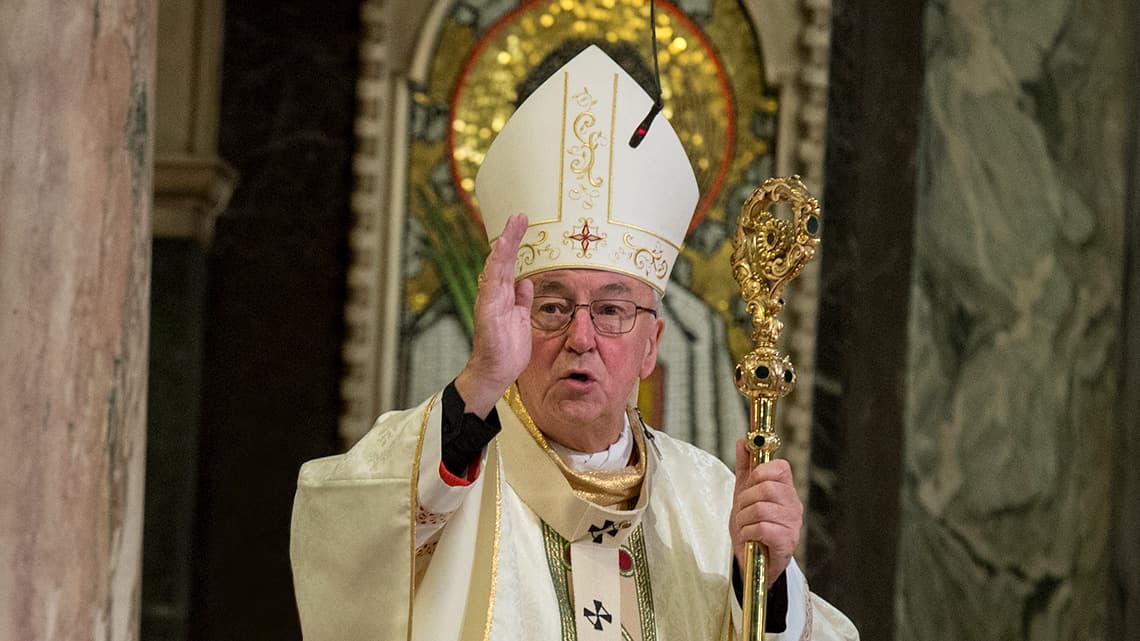LEICESTER, United Kingdom – President of the England and Wales Bishops’ Conference, Cardinal Vincent Nichols, said Saturday was a “most significant day in the life of the Church in England and Wales, and indeed for the Church more widely” due to the creation a new National Tribunal to apply the church’s criminal law.
Nichols called the new tribunal “a focus of practical love and service,” saying it was established to ensure that the “rights and obligations of all the Christian faithful are upheld, robustly and impartially, and that justice and equality prevail.”
While not its only purpose, the tribunal becomes the primary forum in the country for managing cases of clerical sexual abuse under the church’s own legal system, based on the Code of Canon Law.
The National Tribunal was proposed by the English bishops’ conference at their November 2022 plenary assembly, following recommendations of the Elliott Review into Safeguarding Structures and Practice in the Church.
That review was commissioned by the bishops in October of 2019, and started the next year by Ian Elliott. Its report was published on November 20, 2020.
It proposed that the tribunal’s operational scope would extend to preliminary case evaluation; the adjudication of cases at first instance; the adjudication of cases at second instance; and would also perform an educational role about the church’s penal system.
The panel also said that the establishment of a National Tribunal simply to adjudicate upon cases, and nothing more, “is not consistent with the expectations of an effective professional regulatory body or the maintenance of standards encountered within other professions.”
“By setting up this National Tribunal the Church in England and Wales is recommitting itself to this pursuit of justice for all those who find themselves involved in the Church’s penal system, from complainants and the accused, to witnesses and others involved in giving evidence, to victims and those found guilty of an offence, always and in every case reflecting the dignity of each person,” Nichols said.
“Clearly one focus of this work, and it is only one, will be cases of the abuse of minors and adults at risk. Here the nature and importance of evidence, and the testing of evidence, in clear attempts to establish fact and truth are crucial elements,” he continued. “They underpin every system of justice, including canon law, and must be central to every process, and be seen to be so.”
He quoted the recommendation in the Elliott Report. “The defense of the dignity of the human person stands at the very foundation of our common mission to safeguard those who are most vulnerable in our communities.”
Nichols said the dignity of the human person informs and is a foundation for all the work of the National Tribunal, whether that be of a safeguarding nature or otherwise.
“Those who will work in it and take responsibility for its good functioning must always see the work they do through this prism of the service of justice and mercy, the upholding of dignity and of love,” the cardinal added.
The new tribunal was also commented on by Father John Poland, a priest of the Archdiocese of Liverpool who has been instrumental in the creation of the body.
“Fairness and justice lie at the heart of our Christian life,” he said.
“The establishment of the NTS demonstrates the commitment of the Church in England and Wales to promote and encourage consistent and fair practice in the determination of penal cases in accordance with the law of the Church, and so to foster confidence in a just outcome for all those involved,” Poland added.












